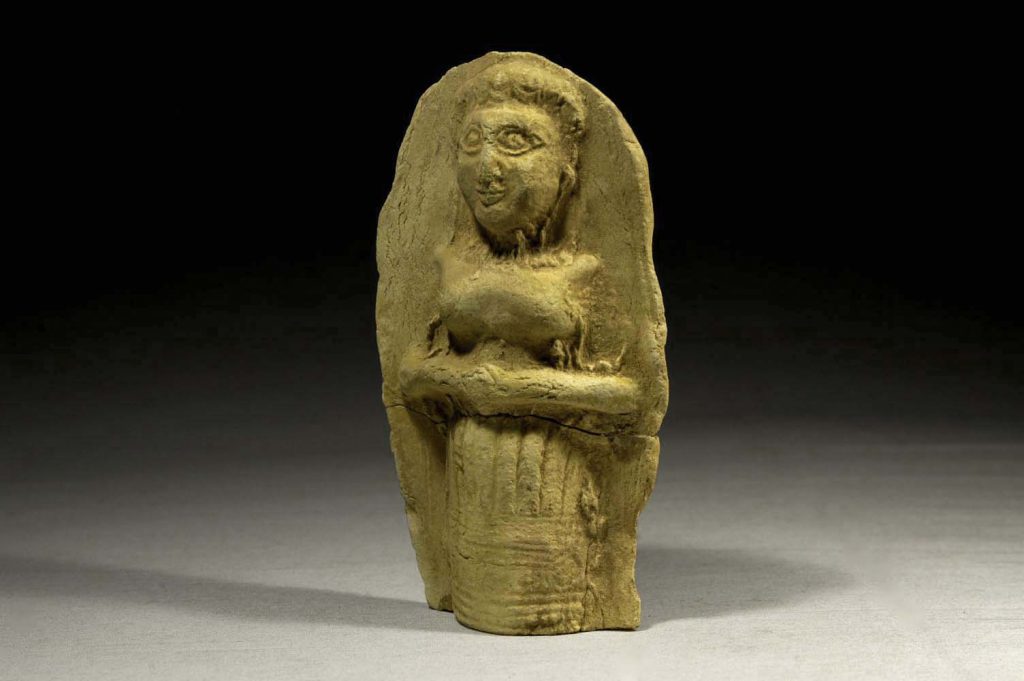
If we were poets, we’d have written a sonnet to beer by now. Not just because it’s what many of our customers make, but also because it’s such a great drink and it has such an interesting – not to mention ancient – history.
Back in the day (the Mesopotamian day, that is), there was even a goddess of brewing, who would now be almost 4,000 years old. Good job she’s a goddess, or she might be looking a little rough around the edges by now… Anyway, she was called Ninkasi and the Shakespeare of her time honoured her with an ode, which contains the oldest surviving beer recipe – made with bread!
Bread into beer?
Yep. Those clever Mesopotamians started making beer in the fifth millennium BC – or at least that’s the earliest evidence we have of them doing so – but they made bread first. Like most great discoveries, it may well have been accidental, as the barley in the bread fermented. And we all know what that means.
In fact, it is argued that beer is one of the oldest drinks we humans ever made, probably because any cereal containing sugars can spontaneously ferment and humans across the globe have been making bread almost since Adam was a boy.
Beer – the bedrock of civilisation
Well maybe not quite but there is an argument that the bread/beer combo is responsible for our ability to develop technology and build civilisation. In fact, in his rather wonderfully entitled Ale’s Well with the World, Steve Mirsky argues just that.
In conversation with Charles Bamforth, the Anheuser-Busch Endowed Professor of Brewing Science at the University of California, Davis, Mirsky was convinced of it and not just because he got free beer for carrying on the argument in the book. It is a compelling argument, and not just for beer lovers. As Bamforth put it, before beer was discovered, people used to wander around and follow goats from place to place. And then they realised that barley could be grown and sprouted and made into bread and crumbled and converted into a liquid, which gave a “nice, warm, cosy feeling”.
So their goat-following days were over. They stayed put while the grain grew and while the beer was brewed. And they made villages out of their tents. And those villages became towns, and those towns became cities. He rests his case.
And the ‘they’ were mainly women
It’s a fact. Before the Industrial Revolution, beer was mainly made in the home on a domestic scale, often because water was unfit to drink and beer was healthier (some would argue it still is!). Then another group got in on the act and started selling it. This time men. And which group consisted of a load of men being in a home-like setting and not going out killing people and animals for a living? Why monks, of course, so these early Christian entrepreneurs made it and sold it in greater volumes. Then by the end of the 19th Century, it pretty much ceased being artisanal and beer got big!
Big is the word
Beer is now produced in huge volume, not just the ‘few beers of an evening’ amount the good wives of early days produced. But interestingly, as we’ve mentioned before, the artisanal variety is making a comeback, so maybe we’ll see a resurgence of the female brewer too.
According to the rather less wonderfully entitled Studying the Global & Brazil’s Beer Market 2016 report, beer is now the third most popular drink in the world after water and tea, with estimates that the global beer market will reach around $636bn by 2020. And Anheuser Busch is still a key player
Beer producers, we salute you!
Again, not because many of you allow us to package your cans but also because you make a product so many people love and you make it with such pride and skill.
So come and talk to us about beer. We’re going to be investigating the history of beer in countries around the globe in future blogs.
The post Beer’s cultural contribution appeared first on WaveGrip.
Our team is happy to answer your questions. Leave us a message and we’ll get back to you as soon as possible.